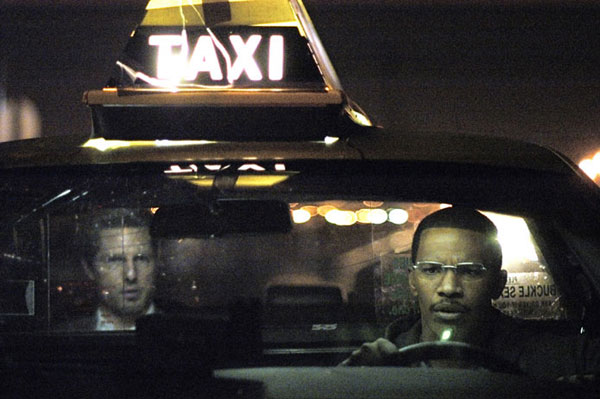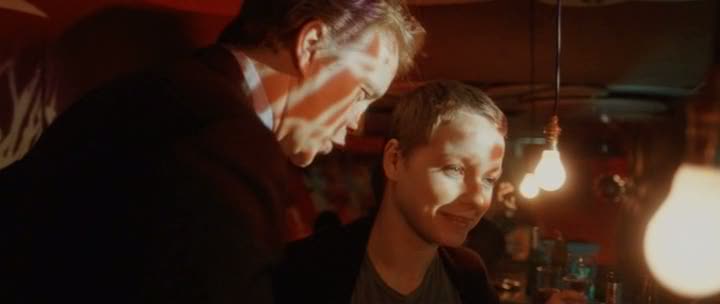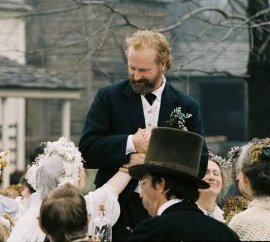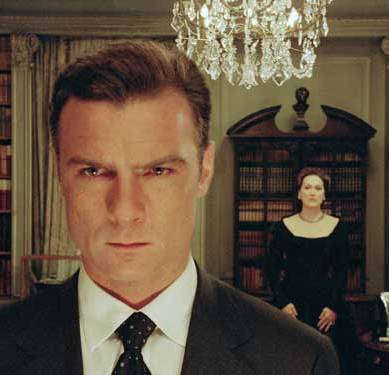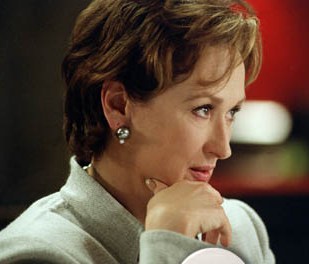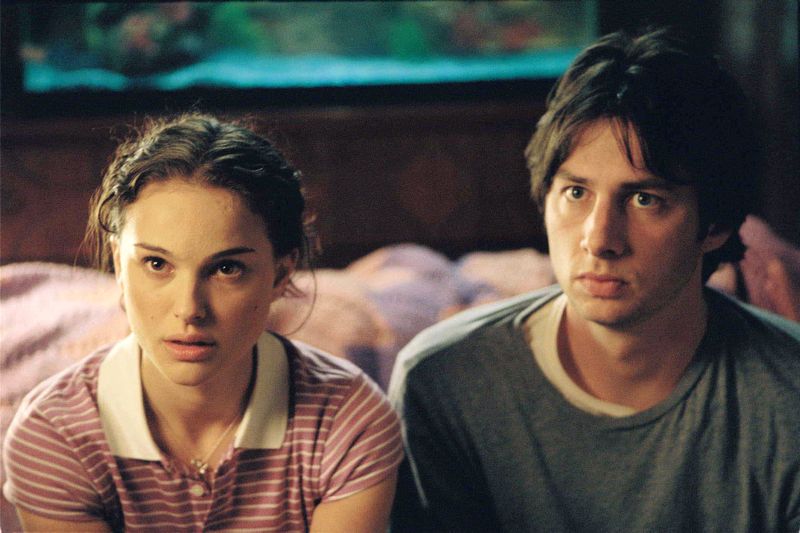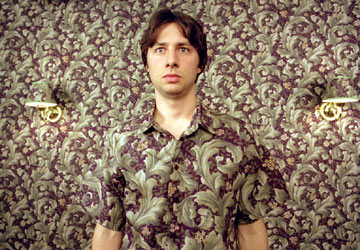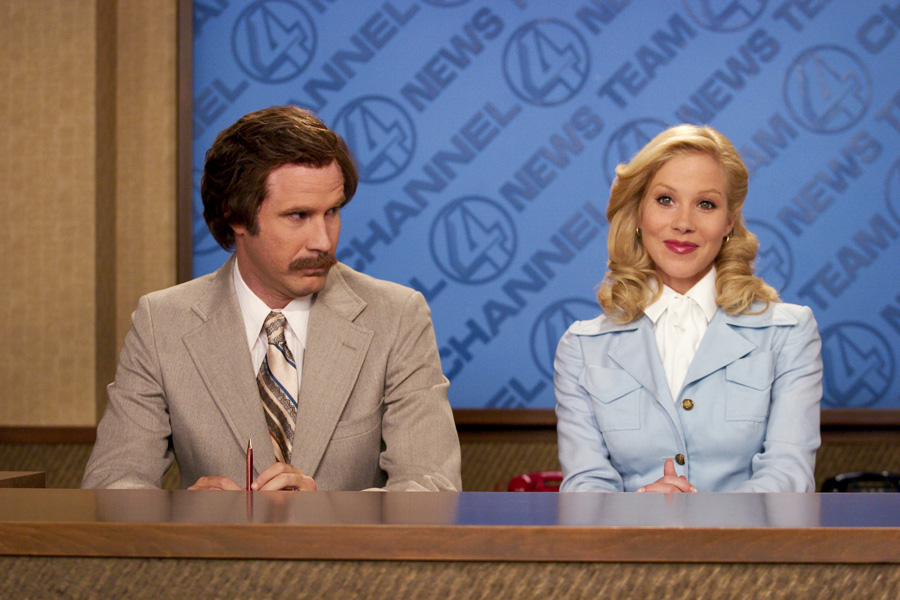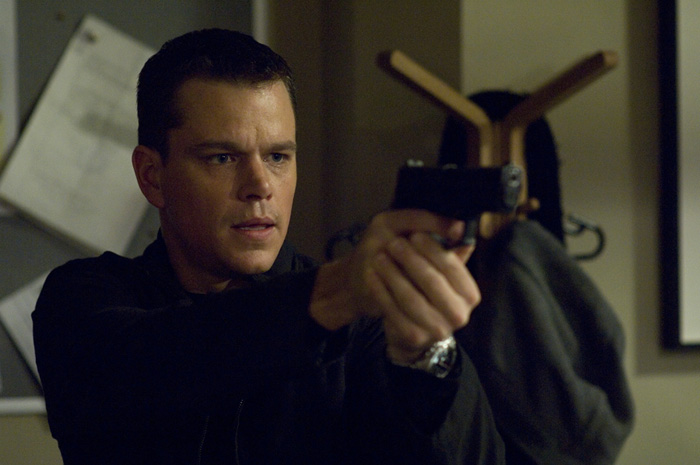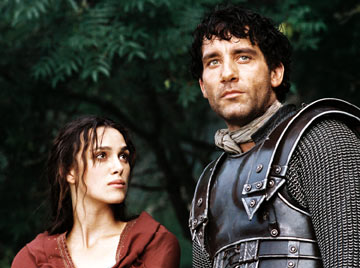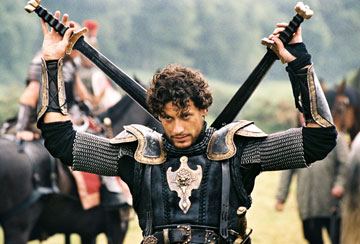
With the movie situation for the next few months looking somewhat grim, I went to see Zhang Yimou’s Hero yesterday with high hopes. But, like a maddening Zen parable, Hero left me of divided mind. Well worth seeing for its colorful meditations on swordplay, music, calligraphy, and story-telling, the film fumbles the sword something fierce when it starts dabbling in political economy…so much so that it basically completely took me out of the movie. Alas, what had started as a very worthy successor to Crouching Tiger, Hidden Dragon ended as an almost laughable exercise in knee-jerk ultra-nationalism. As such, it’s hard not to discuss Hero without resorting to massive spoilers, so here goes.
For much of its running time, Hero is a strikingly kinetic and poetic piece of work that lulls you in with its languid rhythm and sensual colors. As you may or may not know from the ads, a nameless warrior (Jet Li) comes before the rightly paranoid Emperor Qin (a very good Chen Daoming) to tell him of how he managed to eliminate the province’s three most dangerous assassins (an all-star line-up of Donnie Yen, Maggie Cheung, and Tony Leung, with the lovely Zhang Ziyi thrown in to boot.) But, faster than you can say Swift Boat, the Emperor tells Nameless he’s full of it, and offers his own explanation for recent acts of heroism, which are further revised as the film goes forth.
As I said, these various retellings move slowly — even despite the fighting — but with purpose, and are made distinct from one another through color shifts that are at once exquisite and bewitching. But, eventually we come to the end of the story, and therein the problem lies. For, as it turns out, the moral that undergirds our recent contemplations is a pretty reprehensible one (and one you’d think might have been re-evaluated in light of the last century): Namely, that brutal, despicable tyrants must be allowed their cruelties and massacres for the sake of the State.
When this Machiavellian might-makes-right proposition was first uttered by the characters, I thought perhaps I was misreading what was going on. But, no, they go through with it, and almost all of the major characters we’ve been following take a dive in varying fits of nationalistic self-sacrifice, so that the Emperor Qin can gloriously maim, loot, and murder his way into uniting the Middle Kingdom. And, thus the film concludes with the glaring contradiction (pointed out by my friend Jeremy) of mooning over lovers to-be-reunited in “a place without borders” while extolling The Great Wall, still probably the most impressive border every built by humankind.
In sum, Hero is a sumptuous visual feast that’s operating several levels above most schlocky American action pics (including the recent Kill Bills of its US “presenter.”) But the underlying moral sensibility of the final moments is so repellent that it seriously detracts from the film. Call me an incurable Western individualist, but if excusing the crimes of one’s leader for the sake of the (Mother, Father, etc.)Land is heroism, then I’m with Tina Turner. Take it elsewhere, Raggedy Man.


